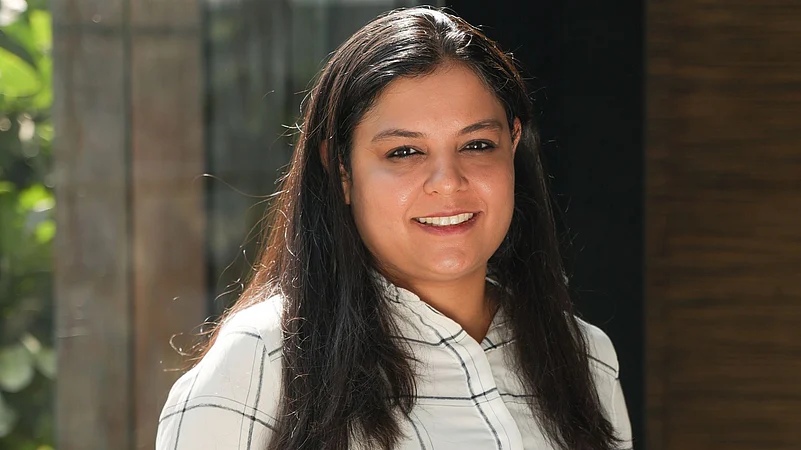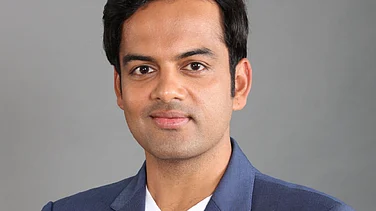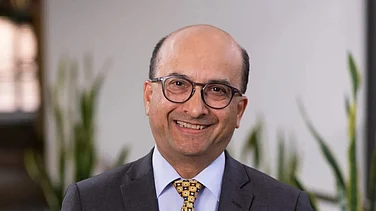Indian stock markets are emerging as the most rewarding exit route for start-ups, especially at the early stage, as per Kitty Agarwal, partner at Info Edge Ventures, a venture capital arm that has been one of the earliest investors in companies like Zomato and PolicyBazaar.
“We remain very excited and bullish about initial public offering (IPOs) for our portfolio companies,” she says. “That is why we encourage entrepreneurs, even those building in AI, to be headquartered in India. Indian markets allow for an IPO at a relatively early stage, unlike the US where the revenue bar is much higher.”
Agarwal adds that start-ups delivering high growth often command better valuation multiples in India compared to most global markets. “So, in general, our guidance to portfolio entrepreneurs is: figure out how you can get to the public markets, because that is the best exit you can get.”
While mergers and acquisitions remain a part of the landscape, Agarwal is clear about their limitations: “Very few M&As [mergers and acquisitions] in India have delivered blockbuster returns to management or investors. So, we don’t remain that optimistic about it.”
In a conversation with Outlook Business, Kitty Agarwal, partner at Info Edge Ventures, talks about the firm’s continued focus on early-stage investing, particularly from pre-launch to Series A, while setting aside a portion of the fund for later-stage bets.
While seed funding remains relatively active, with enough dry powder available among early-stage venture capitals (VCs), global growth investors such as Tiger Global, SoftBank and even Sequoia Capital (now Peak XV) have moderated their pace in India.
This shift has had a ripple effect: companies are finding it tougher to raise follow-on rounds unless they have truly stellar metrics, she adds. Even then, the scrutiny is far more intense and valuations are increasingly conservative. “That bubble where five investors competed and drove prices up, that’s gone,” Agarwal says, pointing to a more disciplined and cautious investment climate. The new normal, she suggests, demands sharper business fundamentals and more patience, both from founders and the VCs backing them.
Edited Excerpts:
Given the global VC slowdown, with Tiger, SoftBank and Sequoia moderating in India, has this impacted early-stage investing?
I think there has definitely been an impact because most of the growth or late-stage investments in India were led by foreign funds. While domestic pools of capital in India are growing, they still aren’t as deep as those foreign pools used to be.
At the early stage, there are still a good number of funds with enough dry powder to seed a lot of companies. But I feel the drop-off at Series A or Series B has become sharper. It has definitely become more difficult for companies to raise those rounds unless their metrics are really strong.
And even when the metrics are solid, investors are taking a much harder look, taking their time with diligence and most of these companies are being valued quite conservatively.
Are valuations truly rising at the seed and early stage or has the overall market shifted towards fairer pricing across stages?
Valuation has decreased. When I say valued very well, it means very fairly. That whole bubble, where you had five investors competing and prices would get bid up into overvalued territory, we're seeing far fewer instances of that now.
The general sentiment people discuss is that valuations are increasing at the seed and early stage, yes, because there are still enough funds in the market with capital. But that’s not the case at the growth or late stage.
Read: Long Gestation Period Hinders Funding in Deep Tech Start-ups, Says DST Secretary Abhay Karandikar
How has the LP mix evolved from fund one to fund three?
We wanted to keep it restricted to a very few high-quality LPs who back us in a big way. And generally, we believe our time as a team should go into investing and helping founders and portfolio companies, rather than spending too much time on fundraising.
In the first fund, we had two LPs, Info Edge and Temasek, both of whom were equal contributors. In Fund III, Info Edge is the anchor LP and now we are in the process of closing out with other LPs. We expect it to be a mix of existing and new LPs and we’re currently in conversation with them.
Read: We Reinvest Our Business Every 3-5 Yrs; Aim to Become a Deep-Tech Co: Ambani
Do you think the IPO market is ideally a good exit for early-stage VCs like you?
We remain very excited and bullish about IPOs for our portfolio companies, which is why we also encourage entrepreneurs, even those who are building in AI, to be headquartered in India, because Indian markets give you that exit through an IPO at a relatively early stage of the business also, if you want. And the bar isn't as high in terms of revenues, etc., that you need to IPO in the US.
Read: Drug Discovery to Spacetech: Here Are Info Edge’s 18 Deeptech Startup Investments
The kind of multiples that you get in the Indian markets for doing something innovative, if you're growing fast, etc., are way higher than most global markets give, right? So, in general, our guidance to our portfolio entrepreneurs is always like, figure out how you can get to the public markets, because that is the best exit that you can get. M&As don't pay as well in India. And hence we don't remain that optimistic about it.
From a tech perspective, do you think it's important for start-ups to have a market exposure in the USA?
No, a lot of them have customers in the US. They have teams in the US. You can do it by having a wholly owned subsidiary in the US. To be honest, everything is possible through a wholly owned subsidiary. It's a myth that people propagate by saying that you cannot get blue chip customers or you cannot get big investors if you're not headquartered in the US. We have not seen either be true in our portfolio.
As a tech investor, do you also travel to the US to meet Indian start-ups in Silicon Valley?
We don't do that because, we are a relatively small fund. And at an early stage, you know, you want to be close to the founders. We prefer to back founders who at least operate out of India for the first few years.
And even if they're not operating out of India, at least someone in the founding team is or they have a team here as well. So, we rarely ever back founders whose entire setup and operations is overseas.
In terms of Zomato and PolicyBazaar being your standout portfolio companies, what are the key lessons in terms of these two companies, which helps you in your exits now?
In this business, it's the founders and their ability to hire exceptional people to manoeuvre changing environments, to be strategic about their business, about the direction, to keep a good culture intact in the company as they scale, to raise funds. I think both of these companies show that fantastic founders always find their way.
And second learning has been that you have to have a long-term kind of orientation as an investor. You cannot be running a sprint if your founder is running the marathon. You have to be running the marathon yourself, which is why even at the fund we are structured as a 12 plus two-year fund, which is 14 years, which is very atypical in VC anywhere at all, because we think, honestly, that it takes at least 10 years in India for a company to go from seed to an IPO.
And if you are in a hurry to exit a company as an investor, you might end up giving advice which is contradictory to the benefit of the company and the founders. So, the fact that we could stay for as long as we did in a Zomato and PolicyBazaar, I think helped everyone, not just us, but all stakeholders in a big way. And the founder also, because you know that here is an investor whose time horizon matches yours in terms of building the company.
And it also helped us realise a lot of the gains that we did. So, if you look at the returns we've made on those investments, a lot of it has come in the last three, four years. So, it's not been like in the first 10 years, we didn't see, we saw great returns but not the kind of stupendous numbers that we saw after the companies went public.
So that has been our second learning. And I think the third learning is, of course, that you've got to hold on where companies look like they are great businesses and that will compound over long periods. It's very difficult to time the market and very difficult to time exits. So, if we believe that a company is a good company, the business is great and can compound, you just hold on.
Your fund has been focusing on deep-tech investments for quite some time now. Could you walk us through the strategy behind this sustained focus?
Basically deep-tech became a focus area when the ex-CTO [chief technology officer] of Info Edge, Vibhor Sharma, moved into an investing role with Info Edge. He started investing out of the balance sheet into deep-tech companies and then that activity continued in a separate fund called Capital 2B.
Ours is the main Info Edge Ventures Fund. Here, the number of investments in deep-tech is lesser but because a lot of the deep-tech investments are from the balance sheet, it affords that long gestation period which deep-tech needs. That’s why Info Edge thought it was a good idea to do deep-tech investments.
How do you assess the risk of government-backed defence projects being abruptly cancelled, leaving start-ups vulnerable?
No, that is a very real risk. I think most of the defence-tech companies have not seen that cycle yet. Everyone’s very early, initial purchase order is coming in, initial pilots are happening, and they are coming up with innovative products. We are all at that stage and the companies we are looking at are also at that stage.
When you underwrite that company for investment, that is when you figure out how you want to price the company, what kind of check exposure you want to have, because that kind of unilateral risk exists, where you have one big customer and that customer’s payment cycles can be delayed. It’s a long working capital cycle business and that customer could say no at some point.
I think at a portfolio level, you make the balance. As a private investor, what you can do is maybe invest in one defence company but have 20 others in the portfolio in more neutral, diverse sectors. And the check size exposure you have in the company is restricted until the company figures out a scalable model or more reliable customers.
You have the Info Edge balance sheet and the Info Edge Venture Fund; how does the investment strategy differ between the two?
We are no longer making financial investments from the company’s balance sheet. Today, the balance sheet is only used for strategic investments and M&A in areas where Info Edge is already operating businesses. All financial or venture-style investments are now made through the Info Edge Venture Fund.
Do you also assess if a pitch is “AI-proof” when evaluating investments?
So basically, we are looking to bet in the direction of change. A lot of the new investments we would make are most likely in founders or companies that are using AI to build the next generation of consumer tech companies or B2B [business-to-business] AI SaaS [software as a service] companies.
Instead of asking, “How will AI disrupt this?” the question we try to figure out is, “How well do you understand how to harness AI?” And how are you adapting to everything that’s evolving with the progress in AI to ensure the company stays at the forefront of using that innovation in a consumer-first way?
So, our question is very different. As an early-stage tech fund, we want to bet in the direction of change. And we want to back founders who are using this kind of once-in-a-generation or even multiple-generations disruption to build new companies.
Is AI SaaS innovation mostly B2B in your view? Are you also exploring consumer-first AI applications?
We’ve done quite a few investments, actually. We have an investment in a company called Rumik, which has an AI companion. It’s doing really well.
We also have an investment in a company called Shoppin, which offers AI-powered fashion image search and fashion search using natural language. That’s doing well too.
Another one is 30 Sundays, which is building an AI-first travel agent for consumers to interact with directly, to plan and book their journeys, take trips, and more. That’s also performing well.
And beyond that, we’ve made a whole host of other investments in the consumer AI space. We’re actively looking for more opportunities and are very bullish on what’s now possible with AI in consumer tech.
AI seems to be shortening the sales cycle. So basically, they’re getting to revenue faster. As an investor, does that impact your timeline? Is the VC horizon shrinking, or how do you see it?
The VC horizon isn’t shrinking. In fact, I think we have to be a little more cautious. Companies in the AI space are definitely getting initial traction faster, but there could be a lot of false positives.
Initially, it may look like something is working, but if the tech doesn’t have any real defensibility and fundamentally, we believe most tech won’t be defensible in the AI age because it’s getting increasingly democratised, then it raises questions. So, what is it that helps build long-term value? Why will a company that’s quickly achieved its first $1–2mn in annual recurring revenue be able to build a defensible business?
That still remains to be figured out. So as a VC, instead of speeding up, I’d say we actually need to slow down a bit and be more thoughtful about which companies have the potential to truly build breakout businesses around this evolving technology.
What’s your metric for identifying a true AI start-up?
To be honest, it's not bad if you're riding on an LLM [large language model]. Today with the advancements in LLMs, it's a good idea to figure out how you want to overlay your inputs into the models and build a more consumer-facing or a business-facing application using it, right? So, at Info Edge, we are very bullish about the application layer on things.
So, but what is important is genuinely the founder knowing what they want to do with the LLMs to build a customer-facing application is important. So yeah, I mean, most things on the tech side will ride on existing LLMs and that's fine. In fact, I would say it's a waste of time and money to actually go and try and build a fundamental model for you to be able to build an AI-first company today.
You want to ride on all of that technology, all of those investments to figure out where the application is.
Any trend you're seeing in the ecosystem overall, VC ecosystem, in the last four or five years?
Second time founders, right, a big trend and experienced operators coming out of large companies like Zomato, Meesho and one company, lots of them coming out and building their own start-ups. A lot of them get very strong investor interest because they've been there, done that, they've seen how these other companies have been scaled up. And so just their learning curves are shorter, and they're able to do more.
So, I'm seeing that as a big trend. The second big trend I'm generally seeing is that, early stage is still as robust as ever. And there's a lot of competition.
We're back to the competitive scenario, but growth and late stage remains a little muted in general. The bar is way higher for you to raise follow-on, large follow-on rounds. And if you're raising, I'm generally seeing a lot of rationality amongst companies, even when they are competing.
Gone are the days when people would sell at negative unit economics, would undercut prices against each other, would engage in irrational competition. Then I'm seeing a lot of rationality in general, which is very heartening for all of us as investors in the VC ecosystem, because I don't think VCs are also any longer encouraging their companies to just out-compete with each other on any price, at any unit economics. None of us are encouraging that behaviour.
Since when are you seeing this?
This has now been the case, I would say, for the last one and a half, two years. And I think corporate governance is also something that has evolved a lot. I think all of us have learned from what has happened in the ecosystem in various companies.
It's been unfortunate, but just the level of vigilance. Like for example, we try and get in a big five auditor much earlier now. You try to have an independent professional chief financial officer hired earlier in the life cycle of a company.
Everyone's becoming a little more stringent on that. So, I would say as an ecosystem or as a VC ecosystem, I think we've all kind of upped our game in terms of good governance at our companies and what we want to do. If there is any inkling at all of anything wrong happening.




























